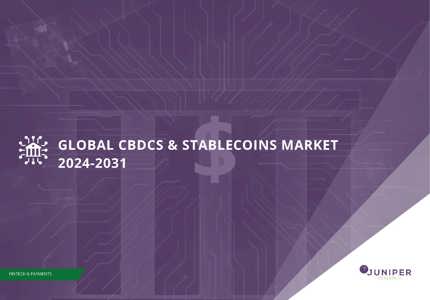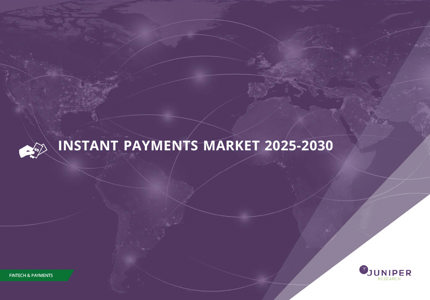UK Election Results: What Do They Mean for Fintech & Payments?
The recent election of Labour in the UK is likely to result in major changes to fintech and payments markets. As industry watchers, we wanted to examine the new government's pledges and provide recommendations on what they should prioritise over the coming months and years.
This change comes at an uncertain time for the industry. Across the technology sector, including fintech, funding has been significantly depressed, with uncertain economic conditions creating difficulties for all types of businesses. There have been reductions in start-up valuations and insolvencies, further creating uncertainty.
There has also been uncertainty within payment systems in the UK, and how they are regulated. The UK has a complex regulatory framework composed of multiple regulators, such as the PSR (Payment Systems Regulator), the Bank of England, and others. Much of the future trajectory in payments in the UK is dependent on government direction, with the Future of Payments Review, released in November 2023, calling for a National Payments Vision, which will provide a clear path for the development of payments within the UK.
The Labour Party identified several key pledges for fintechs within its manifesto. These included the following:
- Streamlining the regulatory rulebook and strengthening international engagement in financial services
- Adopting a coordinated cross-sectoral approach to fraud prevention, including creating a national financial inclusion strategy, and regulating the Buy Now Pay Later sector. In fraud, specifically, Labour advocates making social media companies share the burden of fraud reimbursement
- Making the UK a global hub for green finance activity, delivering a world-leading green finance regulatory framework, and partnering with the financial services sector to support the decarbonisation of our homes
- Becoming a global standard-setter for the use of AI in financial services, delivering the next phase of Open Banking, defining a roadmap for Open Finance, embracing security tokenisation and a CBDC (Central Bank Digital Currency), and establishing a regulatory sandbox for financial products to reach underserved communities
These pledges contain a lot of potential improvements for the UK financial services and payments sector. However, some pledges, such as evolving Open Banking and pursuing a CBDC are broad ambitions, rather than specific actions - requiring a more robust plan in the coming months that provides much-needed detail and certainty.
To this end, we've identified several recommendations that the new government could integrate into its new strategy.
Cancelling Proposed 'Slowdown' of Suspected Fraudulent Faster Payments
This measure, which would see Faster Payments being delayed by up to four days where fraud is suspected, is set to regress payments at a time where the priority should be to increase payments’ speed. While fraud is a major challenge, this is an extreme measure. Instead, we recommend boosting secure data sharing between financial institutions to identify fraudsters, mule accounts, and synthetic identity use to a better degree.
We would also recommend targeting fraud and scams at the source – fraudulent activities through social media are a major risk, and social media companies should be enforced to do more to curb fraudulent adverts and activities on social media. The combination of these measures would work to reduce fraud in an efficient way.
Creating a Clear National Payments Vision That Prioritises A2A Payments
The UK is experiencing good innovation within Open Banking in terms of both access to data and payments. However, the regulator needs to set out the future for Open Banking, and Open Finance. This needs to include setting specific expected outcomes, such as expanding the scope of data access to all financial products. Within payments, Open Banking can be used to enable easier access to A2A (Account-to-Account) payments. This can unlock innovation, and reduce reliance on the card networks.
Commercial VRPs (Variable Recurring Payments) should be prioritised, as these can bring significant benefits across different use cases. While CDBCs should be explored to ensure the UK retains its credentials as a financial services powerhouse, it should not be an urgent priority to deploy a system, rather taking the time to correctly assess a CBDC’s future role, likely in a wholesale capacity. By creating a cohesive strategy, the government can chart a course towards innovation.
Simplifying Regulation to Foster Innovation
The UK represents a complex regulatory framework, with different regulators covering different aspects of the payments, fintech and banking ecosystem. As such, regulatory compliance is quite an onerous task, and the rate of innovation can be slow. It also limits the ability for regulators to quickly crack down on changes in the market that may be unfavourable, given the amount of stakeholders that need to contribute. Labour should focus on reducing the regulatory burden, whilst ensuring that regulators are correctly addressing regulatory risks. Regulators should also take a market-led approach, allowing the market to innovate without being too restrictive. By creating this approach, the government can foster growth.
Critically, the new UK government must prioritise stability and certainty, protecting the safe functioning of the critical payments infrastructure, whilst promoting innovation. This will require balancing the different requirements from the various stakeholders in the payments market, taking a growth-focused approach to the market. Creating a consistent vision for the industry is vital, and can unlock significant innovation. However, time will tell as to how effective the new government’s approach will be in practice.
Nick Maynard is Juniper Research's VP of Fintech Market Research, and enjoys helping clients to size new market opportunities, set priorities for future growth, and understand their customers through survey projects. He has been interviewed by major news outlets such as CNBC, Coindesk, and the BBC, and has spoken at key industry events including Money 20/20 Europe.
Latest research, whitepapers & press releases
-
 ReportFebruary 2026Fintech & Payments
ReportFebruary 2026Fintech & PaymentsMobile Money in Emerging Markets: 2026-2030
Our Mobile Money in Emerging Markets research report provides detailed evaluation and analysis of the ways in which the mobile financial services space is evolving and developing.
VIEW -
 ReportJanuary 2026IoT & Emerging Technology
ReportJanuary 2026IoT & Emerging TechnologyPost-quantum Cryptography Market: 2026-2035
Juniper Research’s Post-quantum Cryptography (PQC) research suite provides a comprehensive and insightful analysis of this market; enabling stakeholders, including PQC-enabled platform providers, specialists, cybersecurity consultancies, and many others, to understand future growth, key trends, and the competitive environment.
VIEW -
 ReportJanuary 2026Telecoms & Connectivity
ReportJanuary 2026Telecoms & ConnectivityMVNO in a Box Market: 2026-2030
Juniper Research’s MVNO in a Box research suite provides Mobile Virtual Network Enablers, Mobile Virtual Network Aggregators, and other players with detailed analysis and strategic recommendations for monetising demand for MVNO in a Box services.
VIEW -
 ReportDecember 2025
ReportDecember 2025AI Agents for Customer Experience Platforms Market: 2025-2030
Our comprehensive AI Agents for Customer Experience Platforms research suite comprises detailed assessment of a market that is set to disrupt mobile communications. It provides stakeholders with insight into the key opportunities within the AI agents for customer experience platforms market over the next two years.
VIEW -
 ReportDecember 2025Fintech & Payments
ReportDecember 2025Fintech & PaymentseCommerce Fraud Prevention Market: 2025-2030
Our eCommerce Fraud Prevention research suite provides a detailed and insightful analysis of this evolving market; enabling stakeholders from financial institutions, law enforcement agencies, regulatory bodies and technology vendors to understand future growth, key trends, and the competitive environment.
VIEW -
 ReportNovember 2025Telecoms & Connectivity
ReportNovember 2025Telecoms & ConnectivityeSIMs & iSIMs Market: 2025-2030
Juniper Research’s eSIMs and iSIMs research suite offers insightful analysis of a market set to experience significant growth in the next five years. The research suite provides mobile network operators (MNOs), original equipment manufacturers (OEMs), and eSIM management and platforms vendors with intelligence on how to capitalise on the market growth, and guidance on how eSIM-only devices and sensors, SGP.42, in-factory provisioning, and iSIMs will change the competitive landscape.
VIEW
-
 WhitepaperJanuary 2026IoT & Emerging Technology
WhitepaperJanuary 2026IoT & Emerging TechnologyPreparing for Q-Day: Post-quantum Security Shift
Our complimentary whitepaper, Preparing for Q-Day: Post-quantum Security Shift, assesses the factors which are increasing interest in adopting PQC, and challenges to PQC adoption. Additionally, it includes a forecast summary of the global spend on PQC by 2035.
VIEW -
 WhitepaperJanuary 2026Telecoms & Connectivity
WhitepaperJanuary 2026Telecoms & ConnectivityHow Fintechs and Retail Companies Are Changing Mobile Services
Our complimentary whitepaper, How Fintechs and Retail Companies Are Changing Mobile Services, explores the key enterprises entering the MVNO market and launching mobile services via MVNO in a Box partners. It also provides forecasts for total MVNO revenue from mobile subscribers in 2030.
VIEW -
 WhitepaperJanuary 2026IoT & Emerging Technology
WhitepaperJanuary 2026IoT & Emerging TechnologyTop 10 Emerging Tech Trends 2026
See which emerging technologies will shape enterprise strategy and investment in 2026; from post-quantum cryptography to neuromorphic computing and next-generation infrastructure.
VIEW -
 WhitepaperDecember 2025Telecoms & Connectivity
WhitepaperDecember 2025Telecoms & ConnectivityHuman + AI: Drivers of Customer Experience AI Agents in 2026
Our complimentary whitepaper, Human + AI: Drivers of Customer Experience AI Agents in 2026, examines the key drivers of the AI agents for customer experience platforms market in 2025.
VIEW -
 WhitepaperDecember 2025Fintech & Payments
WhitepaperDecember 2025Fintech & PaymentsBeyond Chargebacks: The True Cost of Fraud for Digital Commerce
Our complimentary whitepaper, Beyond Chargebacks: The True Cost of Fraud for Digital Commerce, examines the state of the eCommerce fraud prevention market; considering the impact of evolving digital fraud strategies, including key trends such as identity theft, account takeovers, chargebacks, policy abuse and friendly fraud.
VIEW -
 WhitepaperNovember 2025Telecoms & Connectivity
WhitepaperNovember 2025Telecoms & ConnectivityeSIM-only Devices: The Impact on Operators, Consumers, and IoT
Our complimentary whitepaper, eSIM-only Devices: The Impact on Operators, Consumers, and IoT, explores the challenges and opportunities for the three segments, with a particular focus on eSIM-only smartphones and SGP.42.
VIEW
-
Fintech & Payments
Civic Identity Apps, Tokenisation, & AI to Revolutionise Fraud & Security Globally in 2026
January 2026 -
Telecoms & Connectivity
eSIM Connections to Reach 1.5bn Globally in 2026, But Platforms Must Adapt to Fuel Growing IoT Demand
January 2026 -
Fintech & Payments
Modern Card Issuing Platforms to Issue 1.6 Billion Payment Cards in 2030, as Banks Shift Focus From UX to Cost Efficiency
January 2026 -
IoT & Emerging Technology
Post-quantum Cryptography Market to Exceed $13 Billion by 2035 as Q-Day Awareness Accelerates
January 2026 -
Fintech & Payments
Digital Wallets: QR Codes to Constitute Half of All Wallet Transactions Globally Over Next Five Years
January 2026 -
Telecoms & Connectivity
MVNO in a Box Platforms to Drive MVNO Market to 438 Million Subscribers Globally by 2030
January 2026
























